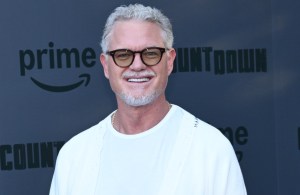Amazon Prime Day is right around the corner, but more and more people are questioning the company’s practices and treatment of laborers. Some are even going so far as to boycott the company. In a new editorial published by Quartz, writer Alison Griswold makes the case for canceling Amazon Prime and abstaining from Prime Day.
Amazon is known for efficient online shopping and fast delivery. What began as a digital bookstore has expanded to the closest thing in the world to a one-stop shop, with everything from household necessities to the most specialized products you can think of. Yet this convenience comes at a cost, and it is often the employees at the lowest levels that need to pay it.
Videos by PopCulture.com
There have been many reports on the demanding world of an Amazon Fulfillment Center. News crews have gone inside to film workers rushing to keep up with timers or struggling to keep up with shipping quotas. Former employees have talked about the extreme difficulty in getting away for a bathroom break, and the toll that long hours take on their bodies. Recently, these kinds of reporters were even consolidated in a segment on Last Week Tonight with John Oliver on HBO.
Griswold weighs these reports and several others against the reality of her own Amazon usage. She recounts how and why she has used Amazon over the last few years, depending largely on where she lived, where she worked and what she needed. Living in Manhattan, for instance, she found the company’s bulk deliveries hard to store in her small apartment, while she conveniently passed all the shops she needed on her commute anyway.
However, Griswold takes into account other offers from Amazon. She notes that she has used it as a way to subscribe to the Washington Post with a little added value, and that she watches some of Amazon Prime Video’s original programming. She also notes that the delivery aspect may be more valuable to customers with no transportation and no conveniently located stores.
“I’m not saying you should cancel your Amazon Prime account. Everyone’s situation is different. Amazon can be essential for a lot of households,” she wrote. “My point instead, ahead of Amazon’s fifth annual Prime Day shopping holiday, is to suggest you take a critical look at your Prime account and ask yourself whether you maintain it out of habit, or because you actually want or need it.”
Griswold also points out the insidious automation of Amazon Prime membership renewals. She questions why the membership automatically renews each year, and why it is designed to be confusing and frightening to quit the service. She compares it to other delivery services that are built around impulse shopping — notably food delivery services like Postmates and Grubhub.
“This approach to shopping is seductive, but slowing down your purchases can also feel good,” she promises.
Griswold joins many others in summarizing other issues with Amazon’s corporate culture, supply chains and labor practices, though she does not dwell on these issues. Instead, she encourages readers to be thoughtful about their need for Amazon Prime before potentially wasting their own money and a worker’s time and energy.
On Amazon Prime Day, many fulfillment centers will require employees to work long over time hours in hot, frantic facilities. The company has placed a huge emphasis on its manufactured sale day, and a number of pundits, including Griswold, are asking customers to really think about whether they can sit it out this year.
“If you change your mind, Amazon won’t hesitate to take you back,” she points out.
Most Viewed
-

WINDSOR, UNITED KINGDOM – APRIL 20: (EMBARGOED FOR PUBLICATION IN UK NEWSPAPERS UNTIL 24 HOURS AFTER CREATE DATE AND TIME) Prince Andrew, Duke of York attends the traditional Easter Sunday Mattins Service at St George's Chapel, Windsor Castle on April 20, 2025 in Windsor, England. (Photo by Max Mumby/Indigo/Getty Images)







